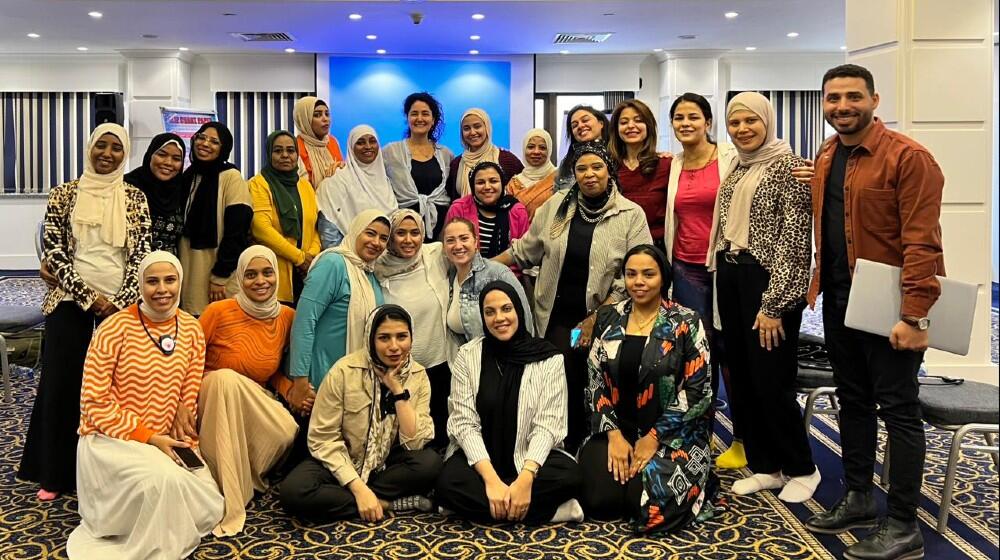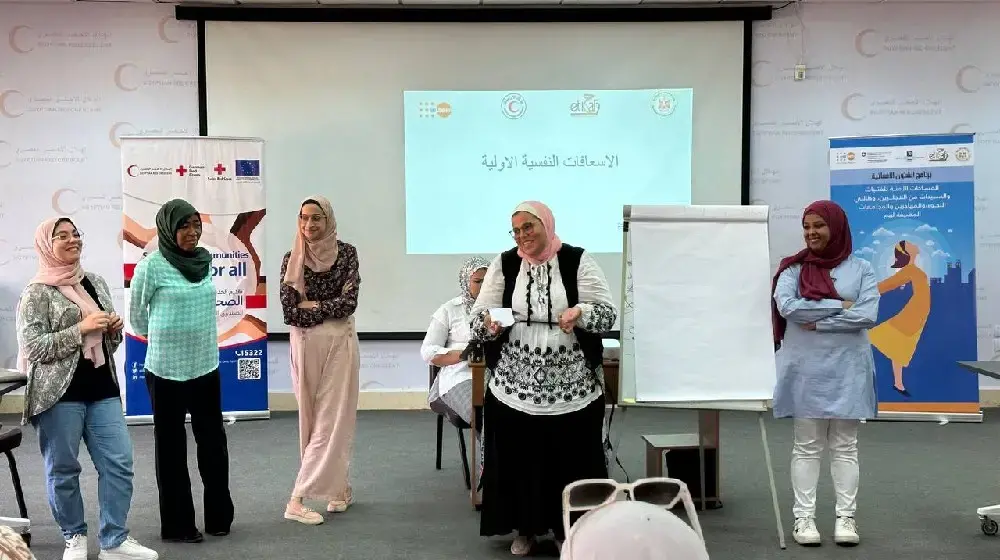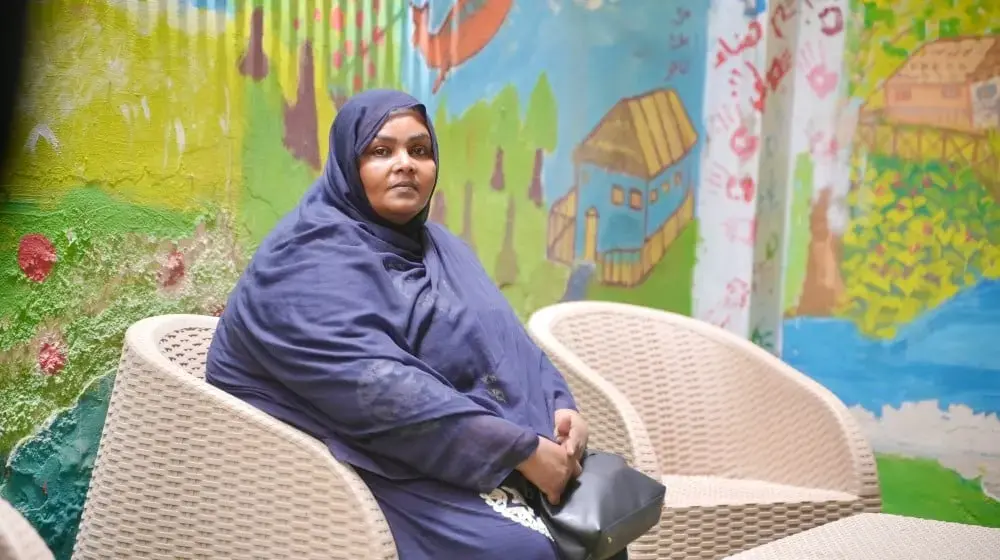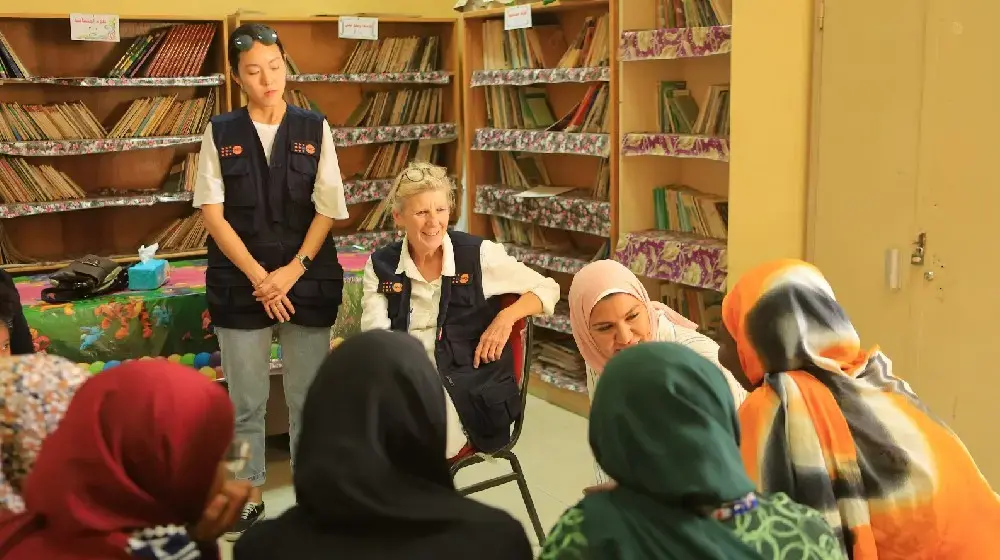Riham is a young Sudanese volunteer and intern at the Egyptian Red Crescent (ERC). At 21, She graduated as a doctor in Sudan. A year and a half later, she is supporting ERC's work in Egypt with refugee communities and survivors of gender-based violence (GBV) as a medical supervisor.
Riham finds immense joy in her role, knowing that she can support those who, like her, fled war and sought refuge in Egypt, “I am at a point in which I have a little power, so I want to help them as much as I can. Most of them [the women] are from my country or have gone through the same. I feel what they have been through.”
Current humanitarian challenges in the region not only have displaced thousands of communities and put more women and girls at the risk of GBV, but it has also taken a heavy toll on the mental health of frontline humanitarian workers. Many are experiencing symptoms of burnout and secondary trauma as they support communities affected by war and displacement.
Riham is a witness to that. “My work is very stressful, especially when I am working with people who suffered the same as I did,” she adds, ”I have been through a road for two days, and in that road you are very afraid of any [type of gender-based violence] happening to you. When I would listen to their stories, the flashbacks came back, it made me feel scared.” Just like her colleagues, oftentimes Riham would come back from work with a sense of not being enough, she says, “In some situations, I find myself saying, ‘I don’t want to work anymore’, because I couldn’t help them.”
Riham was one of the 87 participants supported by UNFPA through several rounds of the three-day Trauma-Sensitive Self-Care workshop that brought together ERC volunteers, as well as the staff of Women and Girls Safe Spaces operated by a Local NGO Etijah and the Ministry of Youth and Sports located across Egypt, providing life-saving GBV prevention and response services for refugees. During the workshop, the participants learned about the nervous system, and how stress and trauma manifests on the human body. Just as importantly, they found a safe space to openly share their emotions and experiences, bonding over the unique challenges they face as humanitarian frontline workers. Additionally, the workshop guided them to practice self-care techniques to manage stress and emotional trauma, giving them new tools to take care of their well-being as they continue to support those in need.
For Riham, this workshop has enhanced her confidence by balancing the care she gives to others with the care she provides for herself. “This has helped me that when they tell me their stories, I will control the flashbacks, and if they come, I know how to deal with them,” she narrates. “[The workshop] helped me understand how I can support them, (...) connect them to the reality through practices, remind them they are not there [where the trauma occurred], they are here. And this will help me support them.”
Furthermore, participants claimed that the workshop had a positive effect on team dynamics. Riham emphasizes the idea of “acceptance” as the most important takeaway: acceptance that everyone can make mistakes, and that it is okay to feel emotions and share these feelings with one another: “I could hear how others react to stress, and I realized about my own symptoms too. I think this made us understand that we are not just workers, we are also people. We will come back, and the office will be different, if they have a problem, most of them will check more on each other. ”
With the support of the Italian Agency for Development Cooperation (AICS), and in line with the Inter-Agency 16 Minimum Standards for GBV in Emergencies Programming, with a particular focus on Staff Care and Support, UNFPA implements this workshop for the staff members of its Women and Girls Safe Space and partners organizations. This standard emphasizes the safety and well-being of staff, ensuring that they receive the necessary support to maintain their emotional and physical health while delivering essential high-quality GBV services in the refugee response in Egypt.





